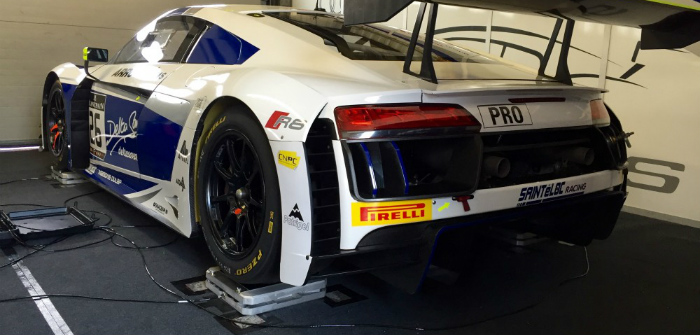Colin Chapman was apparently obsessed with reducing the weight of his race cars. According to a mate of mine who raced for him in Formula 1, he was a little too obsessed with shedding weight in fact. Anything would be done to make his Lotus cars lighter, sometimes – says my mate – without safety or durability in mind.
Chapman’s obsession lives on today as the quest for a competitive edge continues, but perhaps one of the most pointless efforts to reduce race weight in recent years has been the cut-outs in the back of a HANS device. I gather it saved 200g, or to put it another way, a banana at lunch! I also read that Force India driver Sergio Perez worked extremely hard to shed a mere 2kg before the start of this season to ensure he was as fast as possible.
While weight – or rather a lack of it – is unquestionably an advantage in motorsport, I’m not convinced that 2kg or 200g is the difference between winning and not winning. Indeed, I type as a driver who weighs 92kg competing in one of Britain’s most competitive championships (British GT), and trust me, there are more important factors affecting my pace other than my weight. Have I slept well in the days building up to the race? Have I eaten well? Have I hydrated properly? Am I in the right frame of mind even? That I might weigh 90kg rather than 92kg one race weekend will not shape my ultimate pace like any of the aforementioned factors might.
To me, far more important things than weight are often overlooked by race teams and drivers. Take driver comfort, for example. I have raced for more than one team that thinks you are making a fuss if you aren’t completely comfortable in the car. There’s a kind of ‘shut up and drive’ attitude that exists in motorsport, almost like you aren’t manly enough if you can’t cope with a bit of discomfort. The most extreme example of this ‘shut up and drive’ attitude was when I tested a British manufacturer’s prototype. My weight and dimensions were already known, yet I was expected to sit in the same seat as a driver who was well under 5ft 8in (I’m 6ft 2in) and probably tipped the scales at 60kg. Such is my height that they couldn’t even shut the door as my shoulder was in the way! And their solution to my height issue? They removed the seat and stuffed a couple of cushions around my back and sides. I managed an out-and-in lap at pathetically low speeds as I rolled around inside the cabin, my legs cut from who knows what dangling under the dash.
Another simple factor that affects one’s ability to drive a race car fast is having decent rearview mirrors. If a driver cannot see what is around him or her properly, they will be more tentative everywhere. Spend hours, days and weeks looking for small weight savings or simply get the mirrors right? The latter task will reap more lap speed than the former.
And then finally, it’s about listening to your driver. It doesn’t matter what your data shows or what another driver is experiencing in the same car: if a driver isn’t happy with a car’s balance, steering feel, or braking performance, he or she won’t excel. There’s no point trying to prove him or her wrong with figures or even by putting another driver in the car because the fact is that a driver who believes in the car they have – who trusts what’s underneath them – will drive more quickly regardless of what the Motec or rig says. Give a driver what he or she wants, and you’ll get a faster lap.
Now I’m not suggesting that all drivers should go binge-eat and race teams forget about making the car as light as possible, but I do believe that weight today is far too high up the agenda of important race-winning things. Want proof? Usain Bolt, the world’s fastest man, eats a McDonald’s before he sets a new record!



